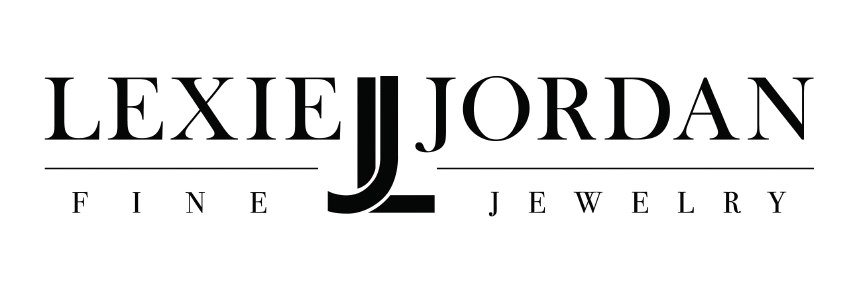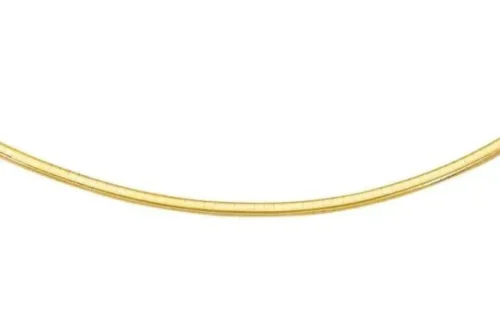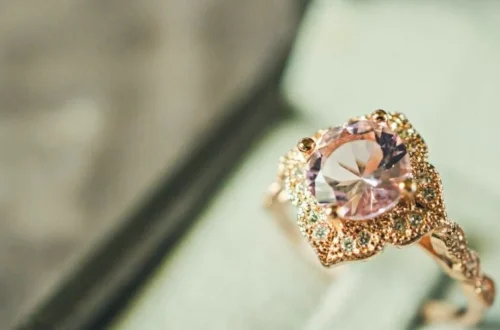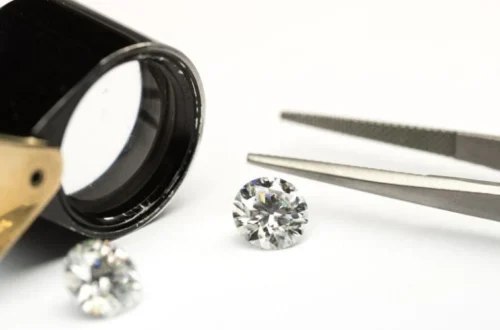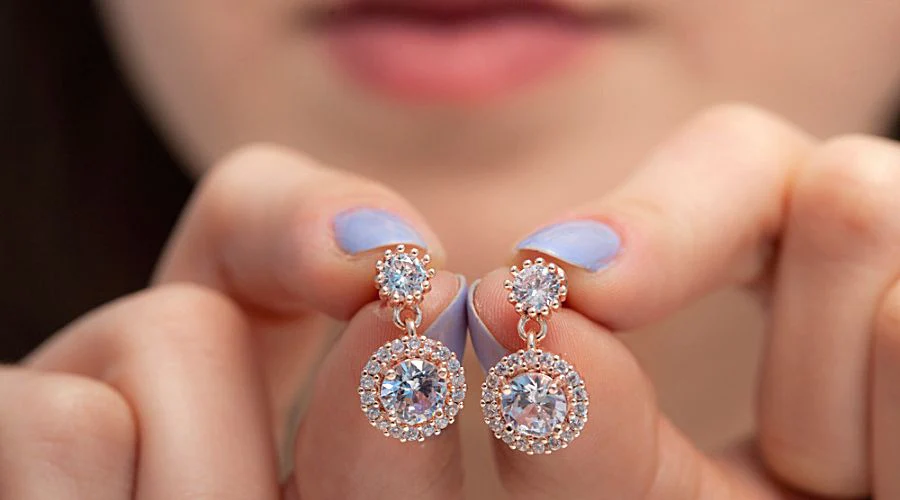
What is Zircon? Price, Properties, & Everything You Must Know
- November 12, 2025
- 682
Are you looking for jewelry that is beautiful, elegant, and cost-friendly? If so, Zircon is a great choice. Zircon is one of the oldest minerals found on earth, and some of the crystals found in Australia are more than 4.4 billion years old!
Zircon may not be as famous as a diamond, but its beauty and shine are very similar. This beautiful gem is available in an array of colors and sizes. If you are intrigued by this little-known gem, read on to know more.
All You Need to Know About Zircon
Here is everything you need to know about Zircon, including its sources, color varieties, symbolism, and where to buy it.
What is Zircon?
Zircon is a natural gemstone formed in nature without any involvement of human beings other than mining, cutting, and polishing. The word ‘zircon’ comes from the Persian word ‘zargun,’ which means ‘gold-colored.’ However, zircon is available in various colors such as blue, red, and yellow.
White zircon is considered a semi-precious stone with its excellent brilliance and dispersion. Also, blue zircon was used abundantly in the English Estates jewelry as it was considered stylish in the late 19th century.
Zircon Sources

Zircon is found in beach sands across the world. Australia tops the list in zircon mining, with over 37% of the world’s zircon produced there. Most zircon is mined from mineral sand deposits in Western Australia and Victoria.
Zircon crystals are also found in abundance in Southeast Asian countries. Cambodia is famous for zircon material that can be heated to a blue color. Tanzania produces red and brownish zircons, whereas the yellow and green colored zircons are found in the gem gravels of Myanmar. For commercial purposes, zircon is generally sourced from Thailand and Sri Lanka.
Other popular locations that produce zircon crystals include Canada, the United States, Mexico, South Africa, Nigeria, Germany, Norway, Brazil, India, Pakistan, South Korea, and Vietnam.
Zircon Properties
Zircon has three primary properties to note, including absorption spectrum, luminescence, and level of deterioration.
Absorption Spectrum
Zircons display many bands and lines across the spectrum. Their absorption spectra are unique and are used to identify them. You can view absorption lines in zircon varieties that do not have a strong spectrum.
The Burmese green zircons may show more than 40 lines, whereas the Australian orange zircons have just a few. On the other hand, red and brown zircons do not show any spectrum.
Luminescence
Zircon crystals have variable luminescence. Some of the stones are inert, whereas others have an intense glow. In the presence of shortwave ultraviolet light, yellow-orange and mustard yellow colors are displayed. Under X-rays, zircons exhibit different colors, including white, green, yellow, and violet-blue.
Red and orange-red zircon crystals remain inert or become yellow or orange when exposed to UV light. Yellow and orangish-yellow crystals remain inert or become yellow or orange.
Green crystals are always inert in the presence of UV light.
Level of Deterioration
Gemologists classify zircon into three different types according to their level of deterioration. High-level (sometimes called alpha) zircon is fully crystalline and not affected by radioactive elements. Most zircons used in jewelry are high-type zircons.
Because of the radioactive elements, intermediate zircons have a damaged structure. On the other hand, low zircons have much more damaged crystal structures.
Zircon Color Varieties

Zircons come in many colors, like yellow, blue, green, brown, coffee, cinnamon, and cognac. Let’s look at some of the popular ones.
White zircon is called Sparklite, and to produce this color, it is heat-treated. White zircon is widely used as a diamond simulant as it resembles its shine and fire.
Red zircon is named Hyacinth or Jacinth. These crystals are mined as red stones and do not require heat treatment.
Blue zircon is called Starlite and was one of the most popular varieties of zircon during Victorian times. It is called Starlite because of its fiery nature.
Jargoon or Jargon refers to light yellow or colorless zircons that are fine enough to be cut as gemstones. Heating colored zircons provide the colorless Jargoon.
Melichrysos is greenish-yellow zircon that is famous for its healing properties.
Stremlite is a blue zircon stone.
Beccarite is green zircon and is very rare to find. It is formed because of metamictization, which is a natural radiation process.
Did You Know?
Zircon is sold under “deceptive names.” For example, “Siam Aquamarines” are simply heat-treated blue zircons.
Top-quality white zircons are often called Matara or Matura diamonds and Ceylon diamonds. They can pass for diamonds in terms of shine and beauty.
Diamonds are precious stones and aquamarines are coveted semi-precious stones. Sellers often use these fake names to sell zircons that are cheaper than these gemstones. This is unethical, and sellers should clearly avoid this practice.
The largest zircon gems come from the gem gravels of Southeast Asia. Some of the biggest natural zircon crystals can be found at The Smithsonian Institution in Washington, DC. You can find other large zircon gems at The Geology Museum in London, the Royal Ontario Museum in Canada, and the American Museum of Natural History in New York.
Zircon Enhancements & Treatments
Sometimes, heat treatments are used to enhance or change the color of zircon crystals.
Heat treatment produces blue, colorless, and golden-yellow shades of zircon. It can also make it more transparent. If reddish-brown zircon is heated without oxygen, it becomes blue. Almost all the blue, golden-yellow, and colorless varieties of zircon are produced by subjecting them to heat.
Blue heat-treated zircon will fade over time when exposed to sunlight. Green and yellow heat-treated zircon will not fade in UV rays, comparatively.
Heat treatment also helps to restore the original crystal structure of zircon. It is common to heat zircon crystals, and the retailers must convey this information to the customers. So, be sure to ask the retailer before purchasing whether the zircon has been treated.
Zircon Jewelry
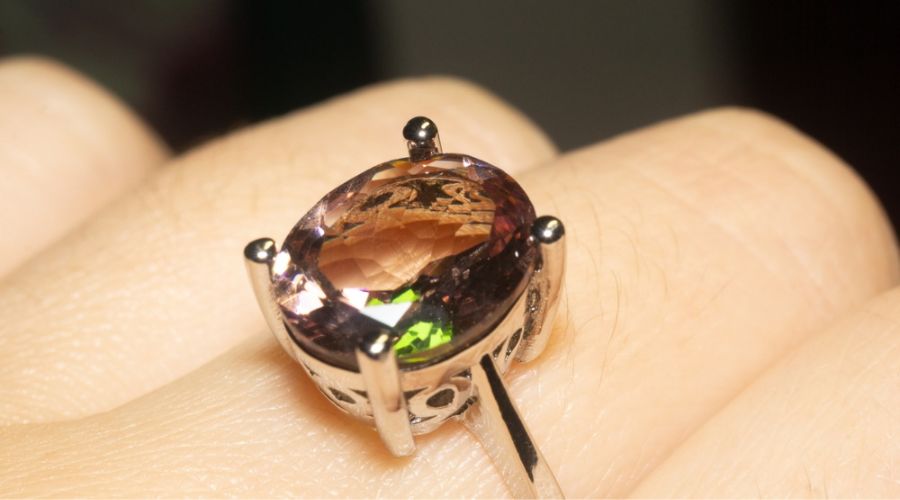
Zircon jewelry is available in a range of beautiful colors and styles. From rings to pendants, you have many options to choose from.
If you’re looking for a statement piece, go for a large zircon piece. On the other hand, smaller zircons are great for casual wear.
It is important to note that zircon jewelry chips very easily and is relatively soft. Zircon is a popular choice for rings, so opt for a protective setting such as flush or bezel. When wearing a zircon ring, avoid hard surfaces and sharp impacts.
Zircon Symbolism
Blue Zircon is the December birthstone along with turquoise and tanzanite. It has a few symbolic uses, as well.
In the Middle Ages, zircon was believed to improve sleep and bring prosperity. Today, zircon is said to improve the mental and physical strength of its wearer.
Zircon gemstones are believed to clear energy blocks bringing peace and harmony to the wearer. Zircon is also believed to heal the lungs and provide relief from respiratory illnesses.
Choosing Your Zircon Gemstone

If you want to add zircon to your jewelry collection, keep the following things in mind..
Zircon Cut
As zircons are brittle, it is a challenge to cut them. ‘Zircon cut’ is a variation of brilliant-cut in which eight extra facets are used in the lower portion of the gem. Faceting helps in enhancing the light performance of zircon.
Zircon’s popular shapes include ovals, emerald step pears, rounds, marquises, radiants, and trilliants.
Zircon Clarity
Enhancing the clarity of zircon improves the value, so some zircons are heat-treated. Generally, zircon crystals have good clarity. However, impurities and flaws sometimes interfere with the clarity, so the crystal will be heat-treated to increase the value.
Zircon Carat Weight
Did you know that zircons are done of the densest gemstones? They are smaller in size when compared to many other gemstones but pack more weight. For instance, if you compare the same size zircon and diamond, zircon will weigh around 50% more.
Larger zircons are rare, so the market most often sees smaller-sized zircons.
Zircon Price
Zircons are cheaper than diamonds. Zircon crystals with unique colors and large sizes are more expensive. Depending on the quality of the zircon, the cost ranges from $50 to $400.
Popular Zircon Alternatives

Synthesized Crystalline Zircons are produced in a laboratory and are an exact copy of natural zircons, but they are much cheaper.
Diamonds and white zircons are also very similar in appearance. It is difficult to differentiate between a properly cut zircon and a diamond as both have the same fire and luster. You can differentiate these two gemstones based on the refractive index.
Diamond’s crystal structure is cubic and has only one refractive index. However, zircon’s crystal structure is tetragonal, so it is doubly refractive.
Cubic Zirconia is another popular alternative to zircon and is also much cheaper. It is made of zirconium oxide, whereas zircon is made of zirconium silicate. Although discovered naturally, cubic zirconia is created in the laboratory for commercial use. Many jewelry pieces made of cubic zirconia are set in real metals such as real gold or sterling silver.
Zircon Care and Maintenance
Zircon ranks between 6 to 7.5 on a hardness scale referred to as the Mohs scale. This means it is a relatively soft gemstone. You should take good care when wearing zircon jewelry and avoid strong blows.
To store zircon jewelry, wrap it in a cloth to avoid scratches. Then, store it in air-tight containers as humidity can harm the stone.
Avoid using mechanical systems, ultrasonic cleaners, bleaches, and strong detergents when cleaning zircon jewelry. Instead, use commercial jewelry cleaner or warm water to clean the stone. After washing, completely dry it before storage.
Some zircons contain trace amounts of radioactive elements and should be inspected thoroughly by gem cutters before they start working on them.
Where to Buy Zircon
During the holiday season, you can get a good deal by purchasing zircon online. You should check the price in different stores before buying. The cost of zircon crystals varies from $50 to $400 per carat.
You should buy the gemstone from trusted retailers. Ask if the crystal has been treated as natural zircons are costlier than the treated ones. Lastly, beware of fakes, such as cubic zirconia, that are often listed as natural zircon.
If you wish to gift zircon jewelry, check out popular brands such as Tiffany & Co, as they have jewelry made with high-quality zircon. Etsy also has a great collection of zircons sold by small businesses.
Categories
NEW POSTS
November 24, 2025
Diamond Bracelets for Ladies – Your Guide to Sparkling Wrist Wear
November 24, 2025
Omega Necklaces Trend – Your 2025 Guide to Chic Neckwear
November 12, 2025
